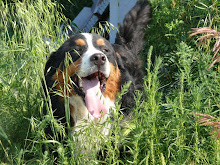
Just how easy is it to con people out of money under the ruse of animal cruelty? How about we hold a bunny rabbit as ransom?
Even when it sounds totally out to lunch, just the mention of perceived animal cruelty is enough to set off the animal rights crowd, no doubt getting more donations as well. Taking a cue from Bonsai Kitten, a site called Save Toby used a creepy premise to throw animal rights activists into a tizzy.
The Save Toby saga began in the early days of 2005, when the site announced that its owners had found a wounded rabbit (which they named Toby) and nursed it back to health--but then declared that if they did not receive $50,000 in donations for the care of Toby by July 30, 2005, they would be forced to cook and eat the rabbit.
The owners asserted that the site was not a hoax: They would, indeed, cook and eat Toby if they did not receive the money. Animal rights activists cried "animal cruelty," to which the owners responded that they were doing nothing cruel to Toby--in fact, they were trying to save him. Supposedly, the site collected more than $24,000 before Bored.com bought it, and Toby was saved. But holding a bunny hostage for ransom?
And you think that no one would take the "Save Toby" seriously?? Well, guess again. Here is a response:
"yeah, you sick bastard, I took the liberty in notifying PETA of your actions, cruelty to animals as well as demanding money for for a life.And trust me, you can expect hell to be raised for you and your sick friends from the law and the largest animal rights groups soon.Have fun with the activist's and the courts, asshole! If you were smart, you hand over the bunny to a shelter and refund all of the money donated to you before you get yourself into a world of hurt."
-Jason
PETA already knows all too well how to con people out of money. They are experts at it.
In 2008, PETA made 31 million dollars.
A book was released in September 2005. The book made a new threat: if 100,000 copies of the book were not sold, Toby would be eaten at Thanksgiving dinner. A sucker and his money is soon departed.
http://www.savetoby.com/
-Post submitted by "No Picture"

